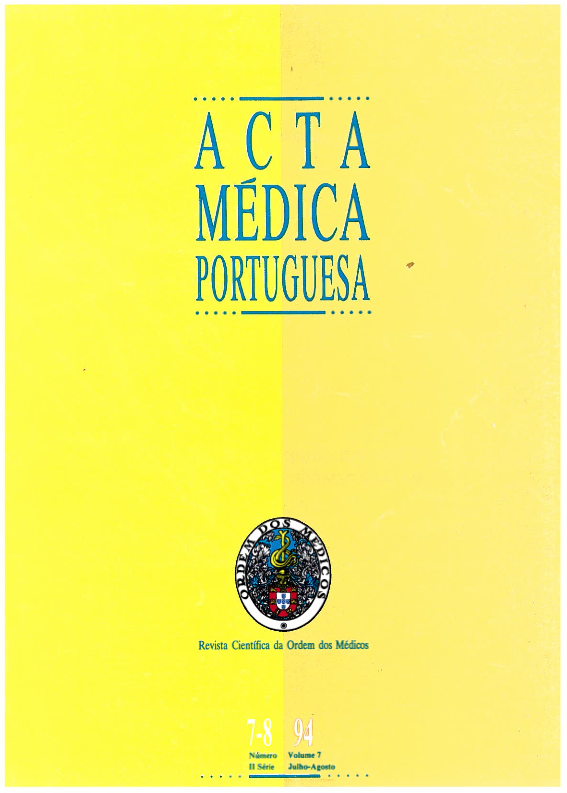The clinical implications of the characteristics of uteroplacental flow in pregnancy complicated by hypertension.
DOI:
https://doi.org/10.20344/amp.2943Abstract
The study of the relationship between maternal and perinatal outcome with uterine blood flows using a continuous wave Doppler unit, in hypertensive patients was the aim of our work. One hundred and thirty seven pregnant hypertensive women seen and delivered at the Department of Obstetrics, Santa Maria Hospital, Lisbon, were included in the study. Blood flows were classified as abnormal if and when the systolic/diastolic ratio was > 2.8 and/or a diastolic notch was seen in one or both uterine arteries. The cases were divided in 2 groups (normal/abnormal) according to the uterine blood flow and correlated with maternal and perinatal outcomes. Twenty-three of 26 maternal complications occurred in cases with abnormal uterine artery blood flow; we also found the large majority of perinatal complications within this group (100% perinatal deaths, 88% of the intrauterine growth retardation, 92% preterm deliveries, 93% fetuses with absent or reverted diastolic umbilical flow, 88% cardiotocographic patterns of fetal distress and 84% of the newborns admitted to the neonatal care unit). In conclusion, in pregnancies complicated by hypertension, uterine artery blood flow evaluation by continuous wave Doppler may identify a set of patients needing closer prenatal surveillance.Downloads
Downloads
How to Cite
Issue
Section
License
All the articles published in the AMP are open access and comply with the requirements of funding agencies or academic institutions. The AMP is governed by the terms of the Creative Commons ‘Attribution – Non-Commercial Use - (CC-BY-NC)’ license, regarding the use by third parties.
It is the author’s responsibility to obtain approval for the reproduction of figures, tables, etc. from other publications.
Upon acceptance of an article for publication, the authors will be asked to complete the ICMJE “Copyright Liability and Copyright Sharing Statement “(http://www.actamedicaportuguesa.com/info/AMP-NormasPublicacao.pdf) and the “Declaration of Potential Conflicts of Interest” (http:// www.icmje.org/conflicts-of-interest). An e-mail will be sent to the corresponding author to acknowledge receipt of the manuscript.
After publication, the authors are authorised to make their articles available in repositories of their institutions of origin, as long as they always mention where they were published and according to the Creative Commons license.









